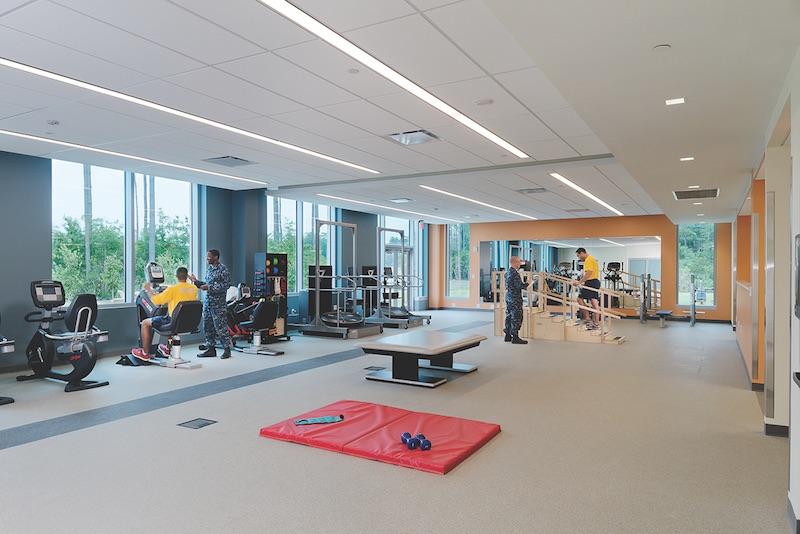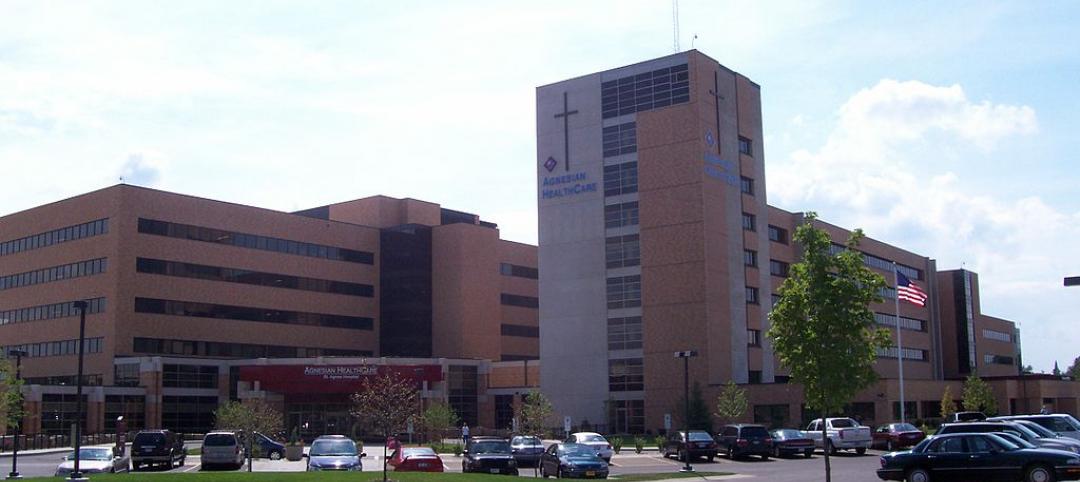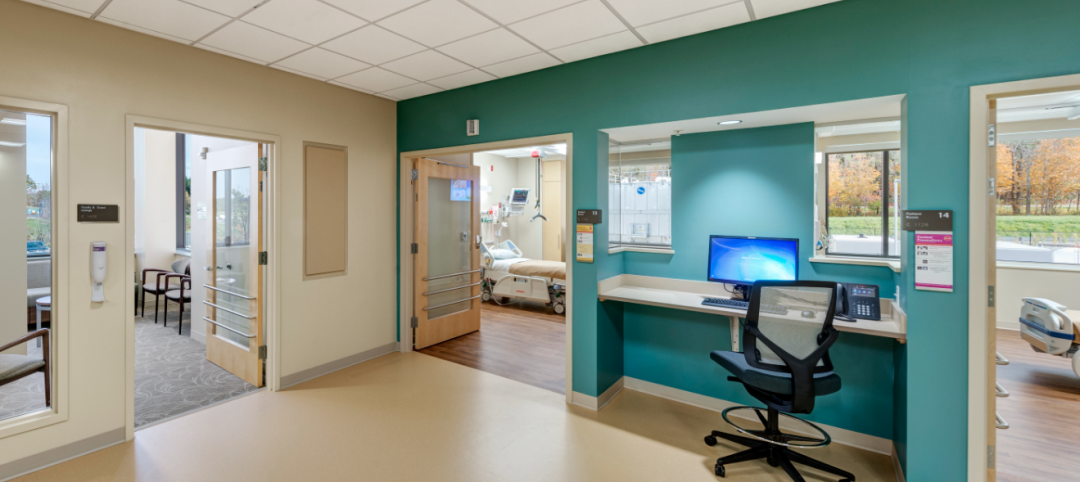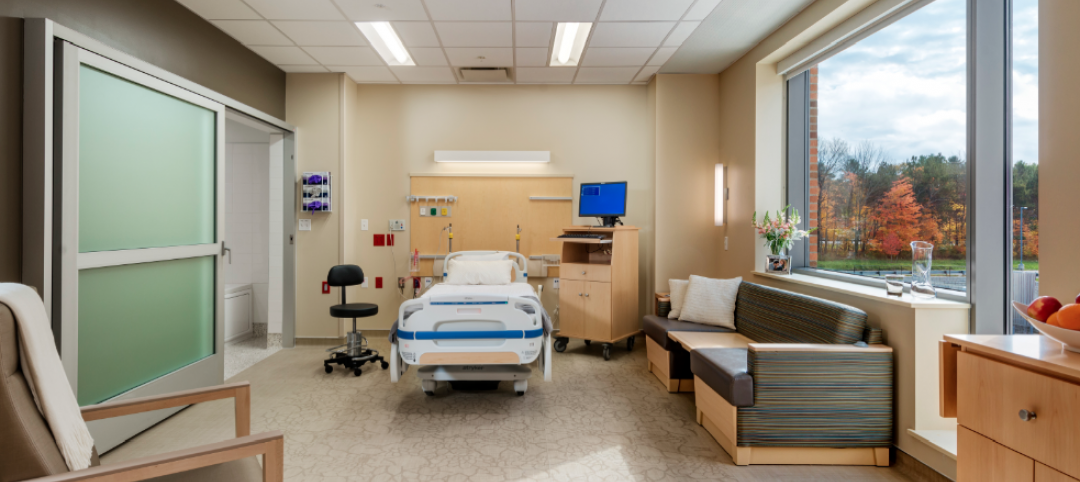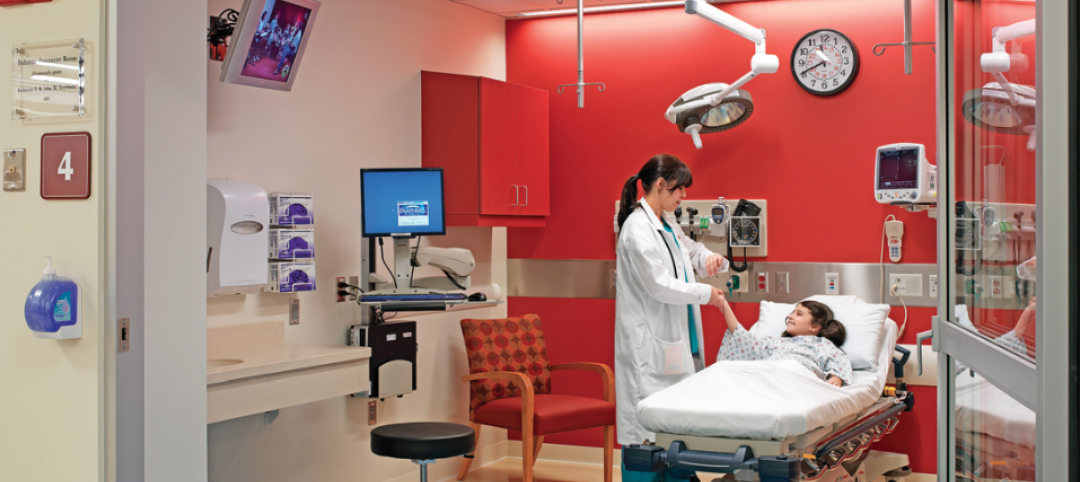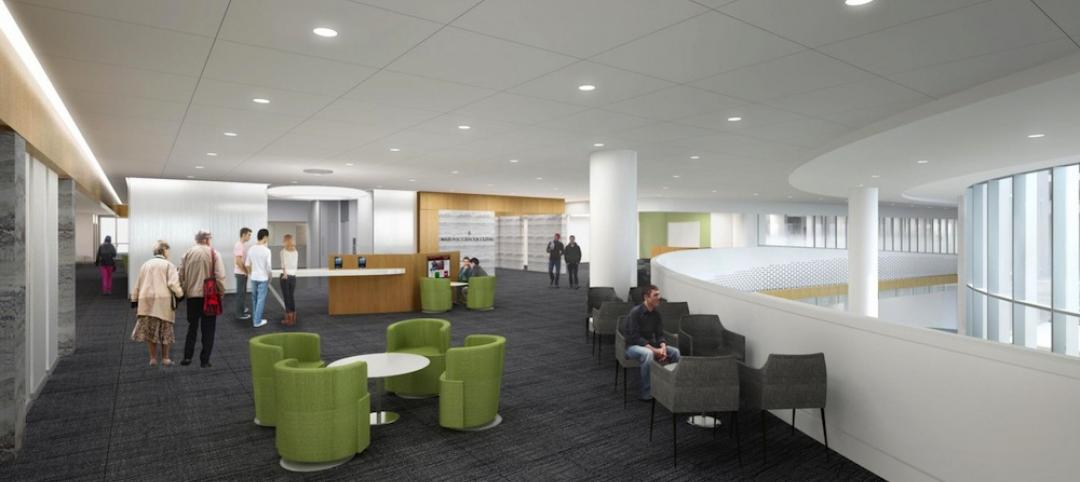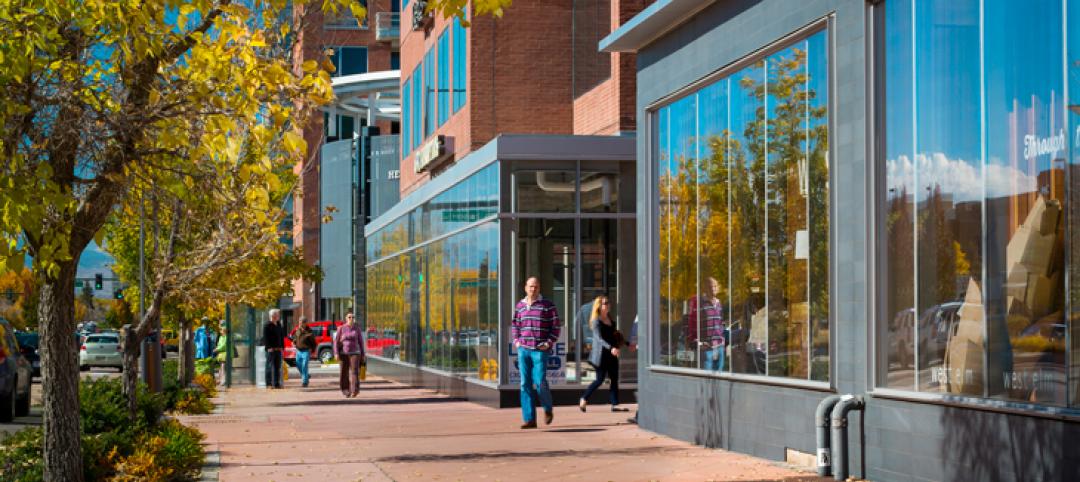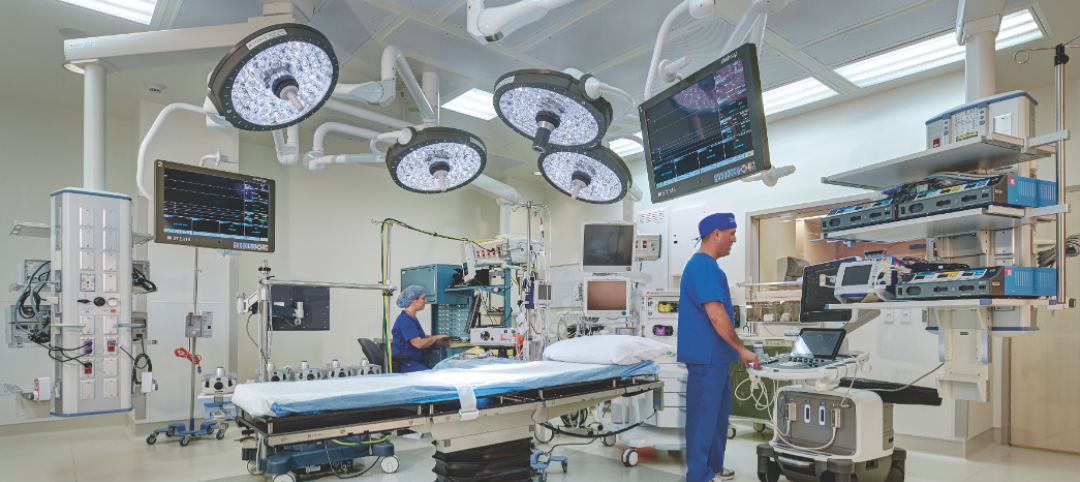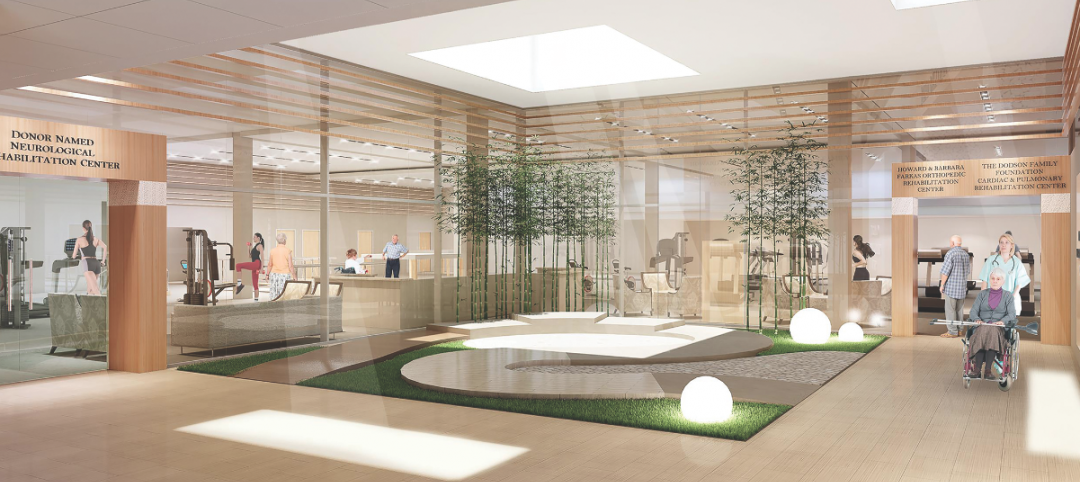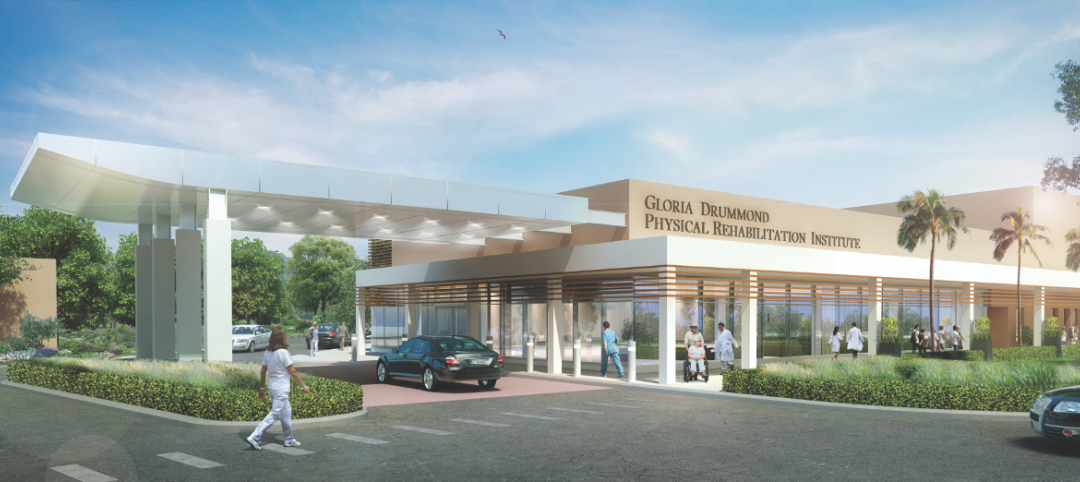Over the past six years, SmithGroup has been working with the Intrepid Fallen Heroes Fund (IFHF) to design and build satellites to the 72,000-sf National Intrepid Center of Excellence (NICoE) in Bethesda, Md., which since 2010 has treated traumatic brain injuries and post-traumatic stress disorders suffered by active-duty military personnel.
To date, seven NICoE Spirit satellite centers—which average 25,000 sf and between $10 million and $12 million in construction costs—have been built on the grounds of Fort Belvoir in Virginia, Camp Lejeune and Fort Bragg in North Carolina, Fort Campbell in Kentucky, Fort Hood in Texas, Joint Base Lewis-McChord in Washington, and Camp Pendleton in California.
Philip Tobey, a Senior Vice President at SmithGroup, says one other NICoE Spirit in design and two others await funding.
The Intrepid Fallen Heroes Fund is led by Arnold Fisher, a Senior Partner with Fisher Brothers, a real estate developer and builder in New York. Originally, he formed the fund to supplement the paltry ($6,000) benefits the government had been paying families of military personnel killed in action. When the government raised its payout to $100,000 per family, IFHF approached the Army Surgeon General to see what else it could do to help active duty military.
See Also: Medical office construction isn’t keeping pace with the aging of America
At that time (2005), 23,000 troops had been wounded in Iraq and Afghanistan, 10,000 of whom sustained injuries that prevented them from returning to duty.
The fund, says Fisher, raised $72 million for the Center for the Intrepid, a 65,000-sf rehabilitation training and research center on five acres at Brooke Army Medical Center near Fort Sam Houston in San Antonio. IFHF was instrumental in assembling the project team for this project, which included SmithGroup (design architect), Syska Hennessy Group (engineering systems design), Cagley & Associates (SE), Garcia & Wright Consulting Engineers (CE), Counsilman Hunsaker (natatorium consultant), Plaza Construction (owner’s rep), and Skanska USA (CM).
IFHF subsequently raised $92 million to build NICoE, which opened on the campus of Walter Reed National Military Medical Center, in Bethesda, Md., The facility has $26 million of imaging equipment, which places it "seven or eight years ahead of civilian research,” says the 85-year-old Fisher.
The Intrepid Fallen Heroes Fund donates the healthcare facilities it builds to the U.S. Department of Defense. Its only stipulation is that it have complete autonomy in managing the projects, which allows it to accelerate the production schedule. The Center for the Intrepid was designed and built in 18 months, and the NICoE Spirits are being completed in 14 months.
Fisher says that speed is of the essence to meet the pressing needs of physically and psychologically damaged troops. “I’m a builder, and I push to get projects done,” he explains. Fisher notes that SmithGroup has been the “perfect partner” because “they understand what we need and the importance of the look of the building” to a patient’s recovery.
Related Stories
Healthcare Facilities | Sep 11, 2015
Health Product Declaration Collaborative releases updated HPD Open Standard – Version 2.0
Advances transparent disclosure of building product contents
Healthcare Facilities | Aug 28, 2015
Hospital construction/renovation guidelines promote sound control
The newly revised guidelines from the Facilities Guidelines Institute touch on six factors that affect a hospital’s soundscape.
Healthcare Facilities | Aug 28, 2015
7 (more) steps toward a quieter hospital
Every hospital has its own “culture” of loudness and quiet. Jacobs’ Chris Kay offers steps to a therapeutic auditory environment.
Healthcare Facilities | Aug 28, 2015
Shhh!!! 6 ways to keep the noise down in new and existing hospitals
There’s a ‘decibel war’ going on in the nation’s hospitals. Progressive Building Teams are leading the charge to give patients quieter healing environments.
Mixed-Use | Aug 26, 2015
Innovation districts + tech clusters: How the ‘open innovation’ era is revitalizing urban cores
In the race for highly coveted tech companies and startups, cities, institutions, and developers are teaming to form innovation hot pockets.
Healthcare Facilities | Aug 19, 2015
5 brand-building strategies in the outpatient environment
No longer coasting off of reputation, leading organizations are using new ambulatory care centers to re-brand for the future of healthcare, writes CannonDesign's Jocelyn Stroupe.
Healthcare Facilities | Aug 18, 2015
Transforming the patient-clinician experience in retail healthcare: 5 'flips' to consider
Flip the Clinic is a Robert Wood Johnson Foundation project invented to transform the patient-clinician experience. In their language, “flips” are actionable ideas for change, writes Gensler's Tama Duffy Day.
Giants 400 | Aug 6, 2015
GIANTS 300 REPORT: Top 75 Healthcare Construction Firms
Turner, McCarthy, and Skanska top Building Design+Construction's 2015 ranking of the largest healthcare contractors and construction management firms in the U.S.
Giants 400 | Aug 6, 2015
GIANTS 300 REPORT: Top 80 Healthcare Engineering Firms
AECOM, Jacobs, and Burns & McDonnell top Building Design+Construction's 2015 ranking of the largest healthcare engineering and engineering/architecture firms in the U.S.
Giants 400 | Aug 6, 2015
GIANTS 300 REPORT: Top 115 Healthcare Architecture Firms
HDR, Stantec, and Perkins+Will top Building Design+Construction's 2015 ranking of the largest healthcare architecture and architecture/engineering firms in the U.S.


